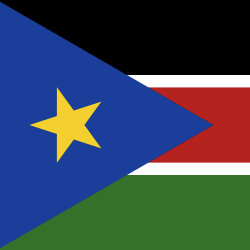Kenya’s President Uhuru Kenyatta may be off the hook at the International Criminal Court, but back home a lot of people still think he’s been pretty incompetent at handling rising terrorism spilling over from Somalia (in retaliation for Kenyan participation in counterterrorism campaigns there). The latest manifestation of discontent has come in the form of a mysterious donkey protest on Thursday:
A herd of [22] donkeys has been dumped in Nairobi’s central business district in an apparent political protest, it’s been reported.
Each of the animals was spray-painted with the word “tumechoka”, which is Swahili for “we’re fed up”, The Standard news website reports. A lorry was seen depositing the herd in the centre of the Kenyan capital, with the driver saying he’d been paid to drop them off. It’s thought the protest was against rising insecurity in the country, as the website notes the “tumechoka” slogan was used in a street protest against a brutal bus attack in northern Kenya in November. As the donkeys were unloaded from the lorry, one activist was heard shouting “we are tired of this leadership,” The Standard says. The scene attracted a large crowd, according to the BBC’s Robert Kiptoo in Nairobi. “Police had a hectic time trying to control the crowd, which had gathered in one of the streets to take a glimpse of the graffiti and take photographs,” he says. The animals are now being looked after by an animal welfare organisation. “We have taken the donkeys to our Moroto offices and arrested some people who are suspected to be involved in the evil act,” a police officer tells The Star newspaper.
Yes, how evil. So dastardly.
President Kenyatta recently fired a number of high-ranking interior and security officials, including some with so little background in the relevant portfolios that they almost make a commissioner of the Arabian Horse Association look qualified to manage a US federal response to Hurricane Katrina.
However, many saw it as too little too late, coming over a year after the horrific Westgate mall siege and the wildly incompetent response there.



 South Sudan is Africa’s newest country and is a significant oil-producer (
South Sudan is Africa’s newest country and is a significant oil-producer (